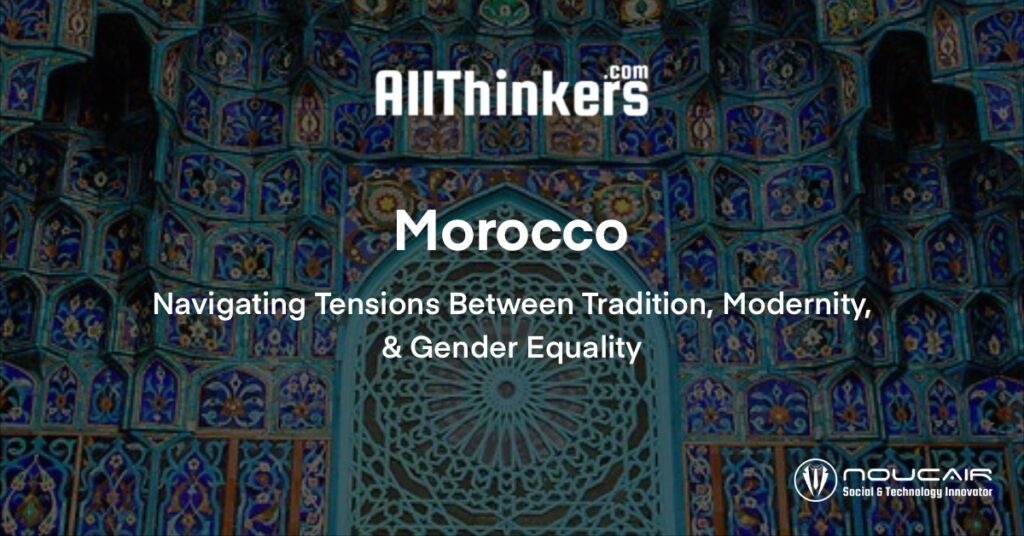Introduction:
The recent observance of International Women’s Day on March 8th in Morocco provided a revealing platform for a roundtable discussion, shedding light on the complexities of gender equality within a nation undergoing significant transition. The debates highlighted deep-seated tensions between traditional values, international norms, and pressing socio-economic challenges.
Key Tensions Revealed:
- The Semiology of March 8th: Beyond mere celebration, this day raised fundamental questions about the roles of women and men within Moroccan society.
- The Impact of Neoliberalism: Concerns regarding the influence of international financial institutions and their impact on national policy were central to the discussions.
- Socio-Economic Challenges: Unemployment, the economic struggles of young people, and high divorce rates were identified as significant obstacles.
- The Role of the State: Participants called for a moderating state presence to balance social and economic forces.
- Collective Consciousness: The necessity for deep cultural change and the importance of collective consciousness were emphasized.
Perspectives and Solutions:
- Inclusive Dialogue: Fostering open and respectful dialogue among diverse stakeholders.
- Adapted Policies: Developing policies that consider Morocco’s cultural and socio-economic realities.
- Economic Empowerment of Women: Supporting female entrepreneurship and women’s access to the labor market.
- Education and Awareness: Promoting gender equality education and combating stereotypes.
- The Role of Civil Society: Encouraging civil society engagement in promoting gender equality.
Lessons and Observations:
One of the key takeaways from the discussion was the recognition of the delicate balance Morocco seeks to maintain. Some participants argued that the challenge lies in a Muslim society attempting to implement global laws, leading to complex discussions and potential misunderstandings. There were also concerns that men are being marginalized by certain approaches and family law, resulting in resistance and apprehension among young people regarding marriage. The high divorce rates, coupled with youth unemployment and economic hardship, further complicate the situation.
A sociologist present stressed the need for a strong state presence to act as a moderator and fulfill its responsibilities. A legal expert highlighted the constraints imposed by international financial obligations and universal laws, which can limit a nation’s ability to adapt policies to its own customs and culture. The jurist explained their inability to think outside of legal text, due to being confined to 400 legal articles.
Practical Techniques for Cultivating Collective Consciousness in Morocco:
To move beyond theoretical discussions and implement tangible change, cultivating collective consciousness requires practical techniques tailored to the Moroccan context. Here are some approaches:
- Community Dialogues and Forums: Establish regular community dialogues in neighborhoods, villages, and online spaces. Utilize traditional Moroccan storytelling techniques.
- Educational Initiatives: Develop educational programs promoting gender equality and critical thinking. Utilize online learning platforms.
- Media and Arts Engagement: Encourage films, documentaries, and artistic works challenging stereotypes. Utilize social media campaigns.
- Technology for Civic Engagement: Develop mobile apps and online platforms for reporting discrimination and accessing resources.
- Collaborative Problem-Solving Workshops: Organize workshops with diverse stakeholders using design thinking methodologies.
- Intergenerational Dialogues: Create spaces for sharing experiences between older and younger generations.
- Local Community Projects: Support local projects promoting gender equality and strengthening community bonds.
Conclusion:
“…The jurist explained their inability to think outside of legal text, due to being confined to 400 legal articles. The importance of collective consciousness and intelligence was repeatedly stressed.“
As a social and technology innovator, observing this intricate balance between legal constraints and societal aspirations, I found it challenging to offer concrete solutions during this transitional phase. However, it became evident that a shift away from radical liberalism that manipulates desires is imperative. I believe that through the cultivation of collective consciousness and intelligence, we can envision and build a future where men and women collaborate with responsibility, respect, and love. This is not just a hope, but a vision I strive to contribute to through my work. – Noucair B.”
Special Thanks:
I would like to extend my sincere gratitude to the Greens Women Organisation of Morocco for the invitation to participate in this insightful and crucial roundtable discussion. Their dedication to fostering dialogue and promoting gender equality is commendable.


